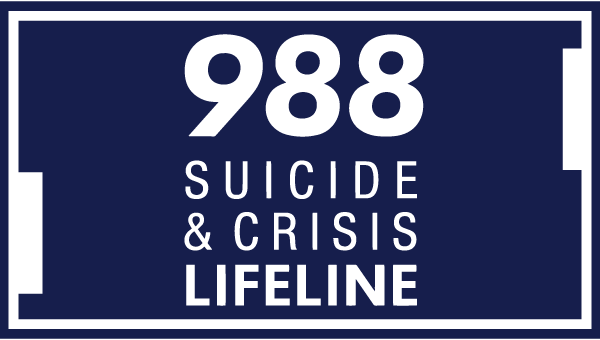
|
||||
|
In this update:
Victim Protection Legislation Signed into Law
Senate Bill 1179, known as the victim address confidentiality act update, has been signed into law as Act 50 of 2022. Act 50 extends the address confidentiality provisions of the ‘Domestic and Sexual Violence Victim Address Confidentiality Act,’ which was established in 2004, to now include the victims of child abduction and the victims of human trafficking, in addition to victims of domestic violence and stalking. The legislation also allows for electronic filing of applications. I was proud to introduce this measure and work with my colleagues to ensure that victims of domestic abuse, childhood abduction and human trafficking will now have greater access to security measures, offering better protection as they work to rebuild their lives. The need for this legislation was brought to our attention by the National Center for Missing and Exploited Children. In addition to streamlining the process so more victims of domestic violence can benefit from the program, this legislation takes a very important step forward in helping to better protect children and victims of human trafficking. To date, nearly 1200 survivors have been provided with a legal, substitute mailing address they can use whenever their residential, work, or school address is required. All first class, certified, and registered mail is received at this alternate location and then forwarded to the participant’s actual address free of charge. Since the beginning of the address confidentiality program, the Office of Victim Advocate, which administers the program, has been successful in preventing assailants from using its records to locate victims, without allowing any inadvertent disclosures. But a requirement that all requests to participate be made in writing has impeded access for some and slowed the process for all. Because of this concern, I am pleased that the bill also expands coverage by allowing updates for applications for address confidentiality to now be submitted electronically. Completion of the 2022-2023 State Budget
The General Assembly approved a budget spending plan for the 2022-2023 fiscal year that totals $45.2 billion, and was signed into law on July 8. The budget, Act 1A of 2022, meets the current needs of Pennsylvanians, without creating multi-billion-dollar budget deficits in the future. The budget also includes federal American Rescue Plan Act (ARPA) funds, and spends $500 million less than Gov. Tom Wolf’s original budget request. I voted in support of the bill, and I am pleased that it includes substantial investments that will be seen locally as a result of the spending plan. No budget process is ever identical or disagreement free. The new state budget involved balancing a broader set of needs and concerns than ordinary. To begin, there was more revenue available than anticipated, due to federal pandemic relief funds and better than projected state revenue collections. But this is not money that can be counted on in succeeding years, so to spend it all would be fiscally reckless. At the same time, spending pressure and requests were heavier than usual. This is Governor Wolf’s final budget, so he was eager to engage in legacy spending. The overall spending level is higher than I would prefer, but that is where extensive negotiation brought us. A prolonged budget stalemate when there is no need to raise taxes or engage in spending cuts is unjustifiable. There are serious program needs carrying over from pandemic restrictions, which need to be addressed. So, all the money cannot be set aside in anticipation of tougher times ahead, because the tough times for families and communities are here now. There is new money in this budget for items that many constituents tell me are top concerns. This includes increased money for classroom instruction, special education, and school security, improved access to mental health services in schools and across communities, and expanded affordable housing options. Additional funds are put toward community law enforcement and crime prevention. This includes support for local law enforcement, anti-violence strategies, and approaches to curb gun violence. These are intended to get at the root of what is needed to bolster community security and safety, rather than risky moves such as taking funding away from police. The pandemic proved that we must provide more state money for the individuals in professions that families rely on for support. Notable examples are nurses and childcare workers. This helps with worker retention and attraction. As employers make decisions as to options for individuals to work remotely on a full or part-time basis, the support systems of child or elder care are adjusting accordingly. Families need access to affordable and quality care options. As a graduate of Shippensburg University, I recognize the opportunities our public universities offer for students and the positive impact the schools have on the regions they serve. Having undergone programmatic overhauls and two mergers, the state universities qualified for extra funding above the usual to bolster enrollment and better prepare students for success in the workplace. Many times, areas such as water quality, conservation, and recreation typically fall lower on the priority list for funding than education, health care, and transportation. This year was the time to pay more attention to these programs, as the pandemic compelled more people to spend more time in woods and on waters, and to thus become more committed to improving facilities and ensuring our natural resources are properly protected. More details regarding the 2022-2023 State Budget are available at: https://www.pasenategop.com/state-budget/. New Laws Aim to Improve Information Sharing and Health Outcomes
Bipartisan legislation designed to improve the ability of health care providers to treat the overall health of patients is now law. Act 32 and Act 33 of 2022 amend the Mental Health Procedures Act and the Drug and Alcohol Abuse Control Act to allow for sharing of patient information among providers, facilities and insurers. The changes would also meet existing Health Insurance Portability and Accountability Act (HIPAA) requirements to ensure patient confidentiality. Under current law, mental health and physical health information cannot be fully shared among providers in Pennsylvania. The proposed changes would bring Pennsylvania in line with the majority of states that already share this information and are seeing improved patient outcomes. Call 988 for Suicide Prevention and Crisis Support
Pennsylvanians now have an easier way to connect to behavioral or mental health crisis services. Dialing 988 will connect callers directly to the National Suicide Prevention Lifeline. The Lifeline’s trained crisis response professionals support individuals considering suicide, self-harm, or any behavioral or mental health need for themselves or people looking for help for a loved one. Lifeline services are available 24 hours a day, seven days a week at no cost to the caller. 988 counselors located at 13 crisis call centers around Pennsylvania can immediately provide phone-based support and connections to local resources. Tips to Conserve Energy and Manage Summer Power Bills
As hot weather settles in, the Public Utility Commission (PUC) offers tips on conserving energy and keeping summer power bills manageable.
You can find more tips here. For consumers struggling with paying utility bills, the PUC continues to encourage them to call their utilities to discuss the many different affordability options available.
Please do not reply to this email. If you would like to contact Senator Baker, submit a web contact form here: https://www.senatorbaker.com/contact-me-2/ |
||||
|
||||




Want to change how you receive these emails? 2025 © Senate of Pennsylvania | https://www.senatorbaker.com | Privacy Policy |





